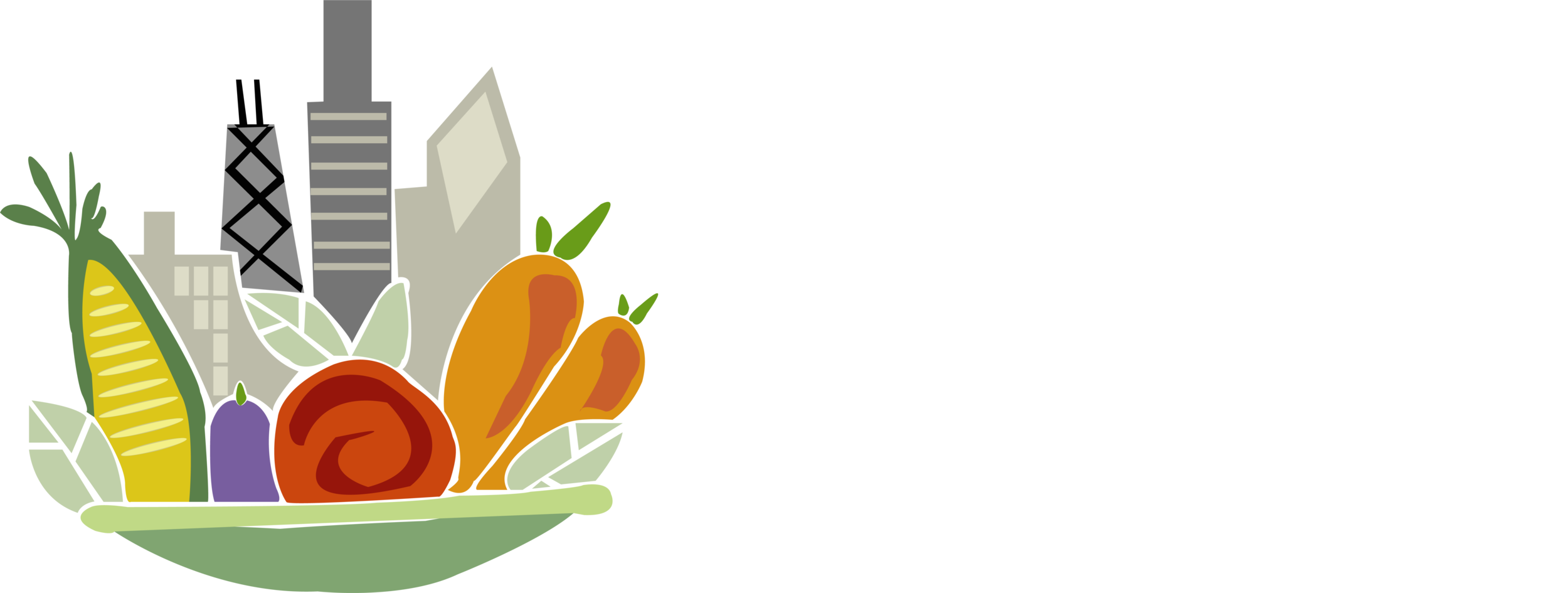Suburban Cook-area groups receive up to $25,000 to feed Covid-impacted communities
Suburban Cook County-area groups receive up to $25,000 to feed Covid-impacted communities
Six organizations will receive business support and grants to feed the suburban Cook County communities most heavily impacted by COVID-19
Cook County, IL - The Chicago Food Policy Action Council announces the six recipients of a microgrant for Providing Healthy, Locally Sourced Emergency Meals To Food Insecure Communities In Suburban Cook County. Over the next five to twelve months, the awardees will receive up to $25,000 and business support to grow their operations and distribute healthy, locally-sourced meals to suburban Cook communities. At least 10,000 total emergency meals will be distributed in suburban Cook County during this project period.
“Not only will this project provide food to those in need, but the funding is intended to invest in local farms and food businesses who are serving their communities. ”
The awardees are:
Centro de Trabajadores Unidos
Roots, Eggs, and Greens
Food He.ro L3C
Grace United Church
Health Policy Institute
Street Vendors Association
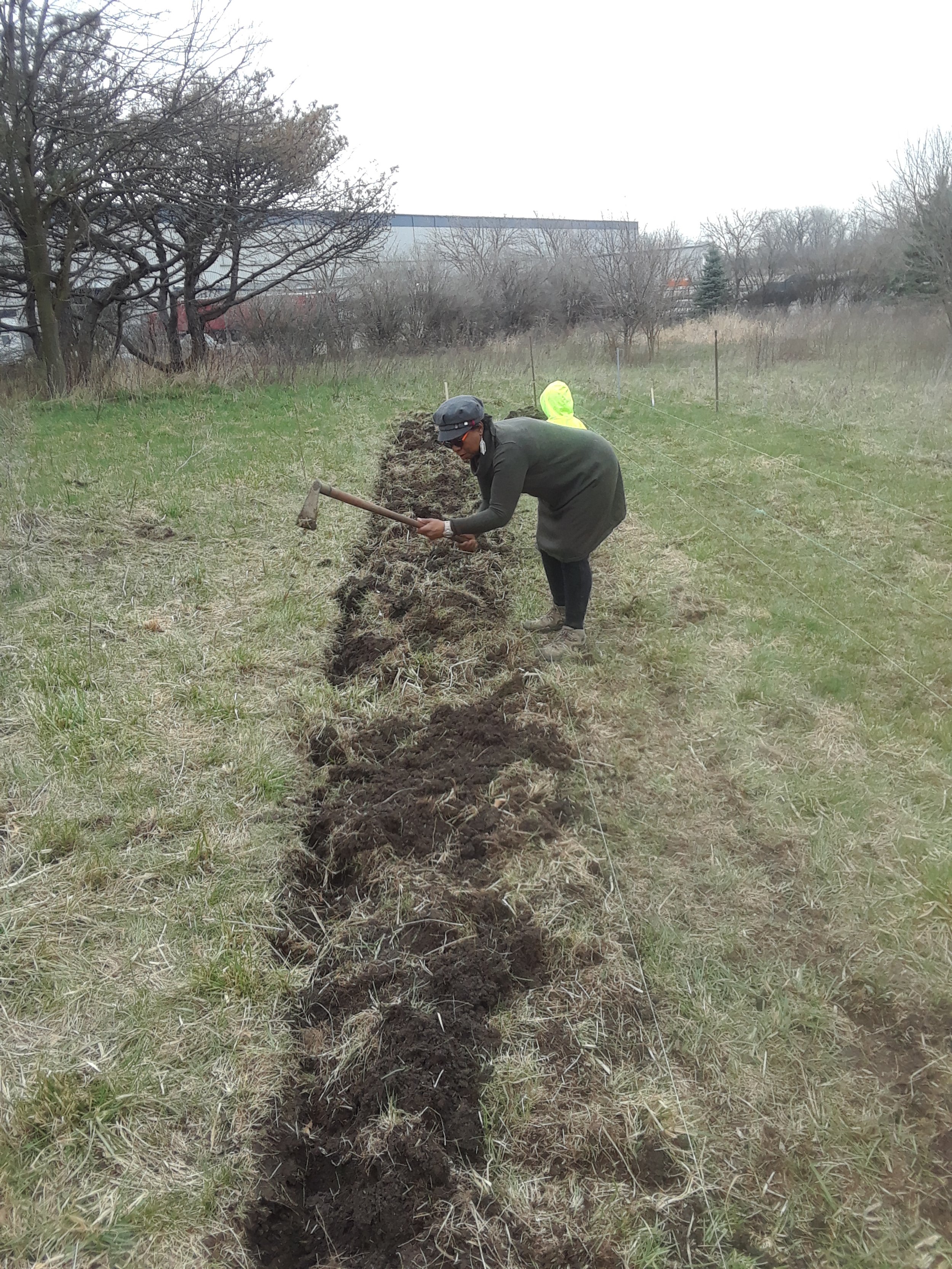
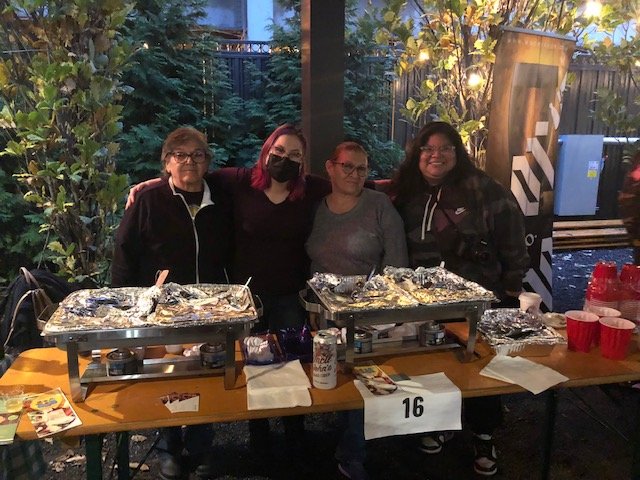
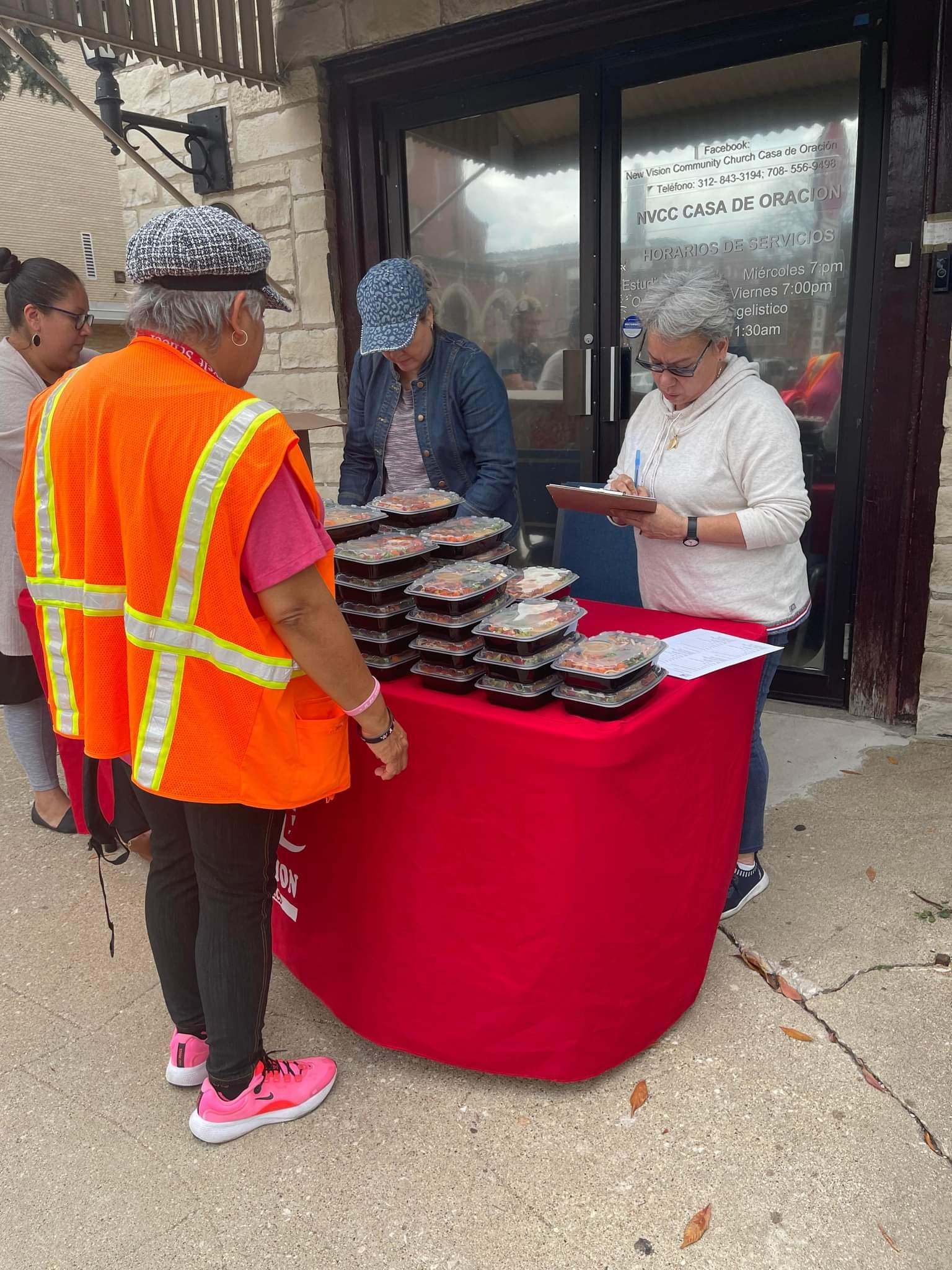
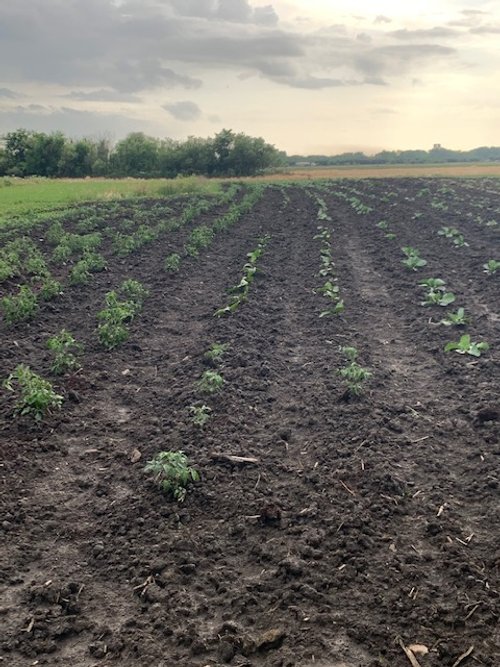
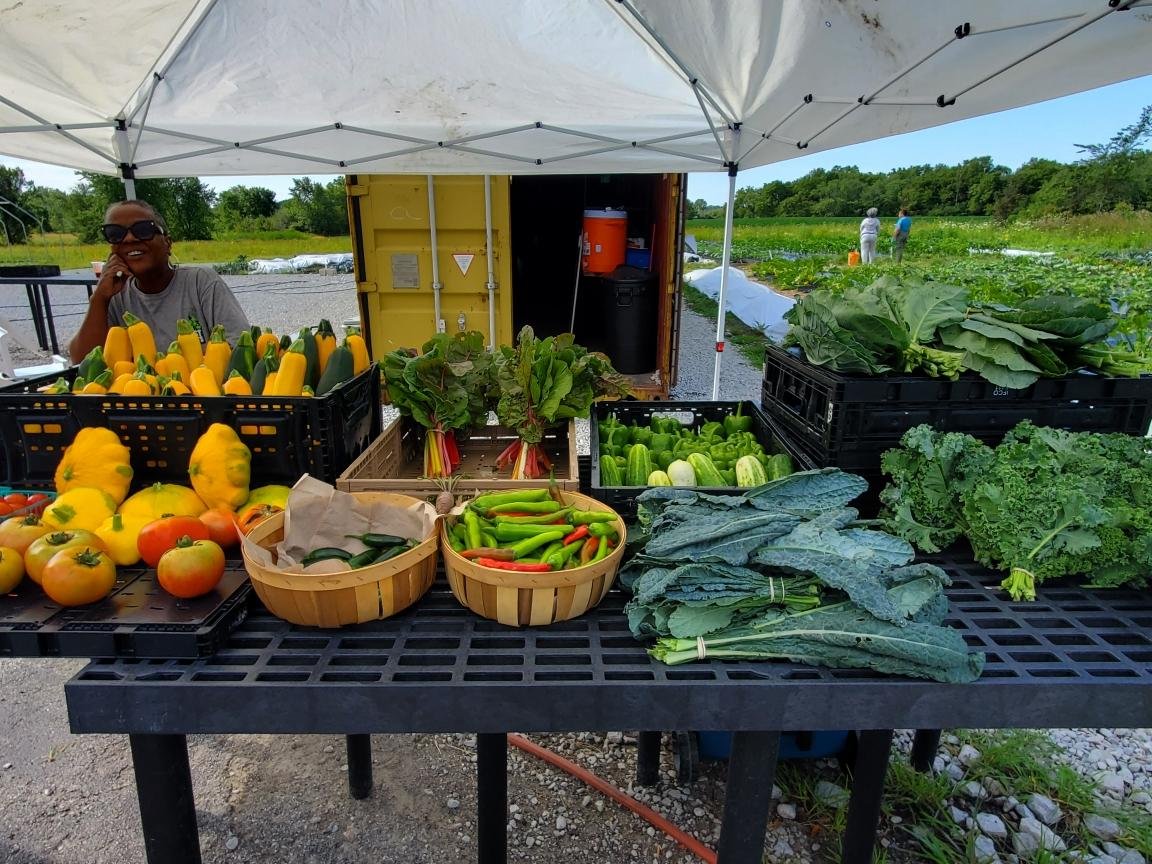
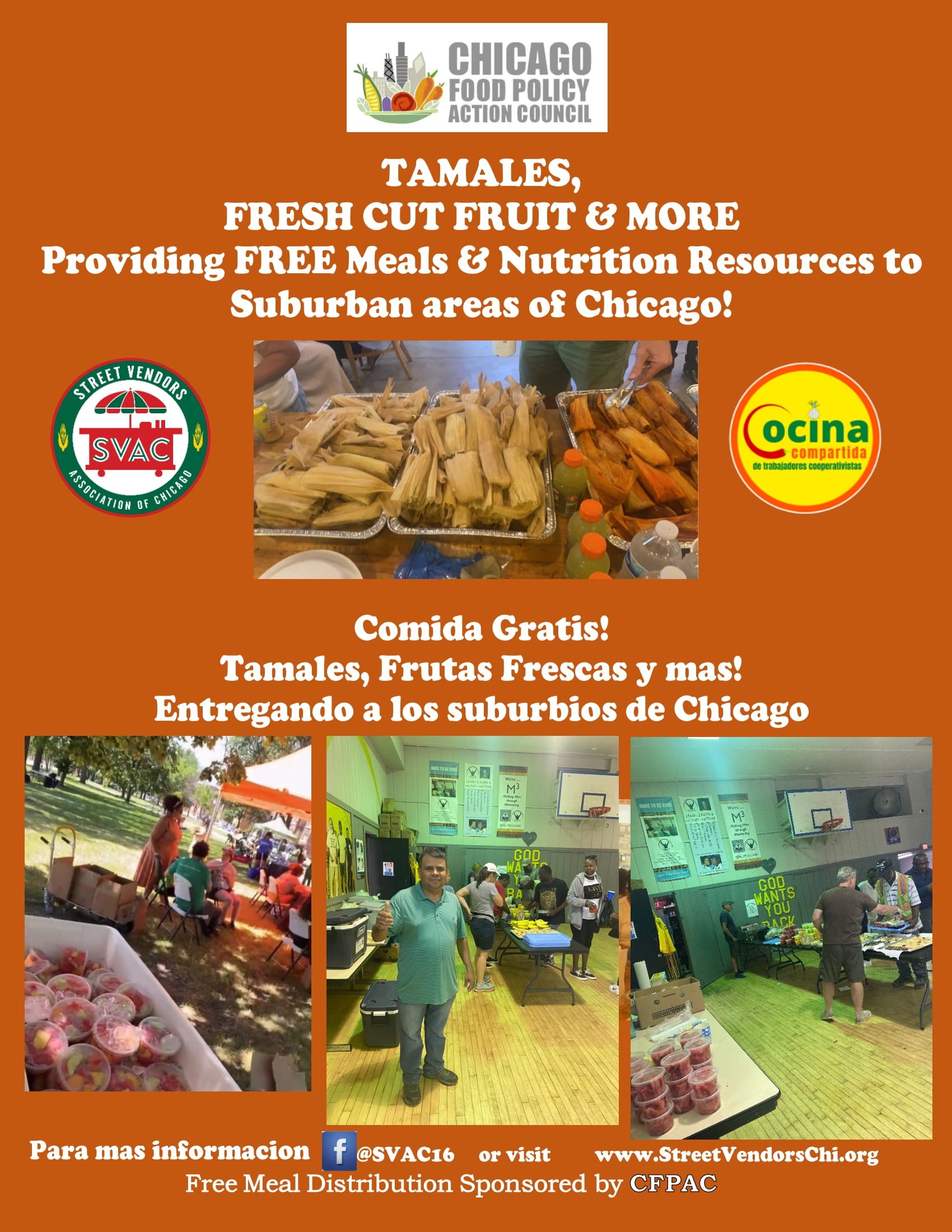
Centro de Trabajadores Unidos
Chicago, East Side: Centro de Trabajadores Unidos is a grassroots, member-led worker center and community organizing hub serving Chicago’s southeast side and south suburbs. In 2018, their southeast Chicago incubator launched Las Visionarias, an immigrant women-run catering cooperative, one of the first worker cooperatives in Illinois. To date, CTU and Las Visionarias, in partnership with ChiFresh Kitchen and Street Vendors Association of Chicago, have distributed 51,000 meals throughout Chicago’s southeast side and area suburbs.
CTU and Las Visionarias are aiming to produce 250 nutritious meals per week for the duration of the subaward period. They will distribute bilingual public health information, newsletters, and other printed material with each prepared meal. They are also hoping to expand their hot meals program during the subaward period by hiring an additional driver.
CoGro Biodynamic Growers
Chicago Heights: Roots, Eggs, and Greens (“RE&G”) is a charitable project affiliated with CoGro Biodynamic Growers, a Black woman co-owned and operated biodynamic grower based in Chicago Heights that is focused on sustainable plant-based eating, heirloom African American food, and farm to kitchen table eating. Through a 3-year-old CSA program, CoGro has distributed heritage and heirloom vegetables, and works with small BIPOC-owned restaurants in Chicago Heights and Chicago.
RE&G will provide African American heritage foods for emergency meals, either by contributing the food to local food banks, or providing food boxes directly to individuals in need. RE&G will provide food education and recipe cards with the boxes, and looks forward to developing nutrition education with the microgrant technical assistance providers.
Food He.ro L3C
Chicago: Food He.ro is a Latino led social enterprise culinary school that builds culinary confidence for people of color through culinary training, entrepreneurship, and nutrition education. They prepare meals through a "Food as Medicine" campaign, prioritizing culturally relevant meals with produce sourced from local growers. Since 2020, Food He.ro has served over 30,000 meals to communities of color in Chicago along with suburban towns like Cicero, Berwyn, and Blue Island.
With this subaward funding, Food He.ro will aim to produce 1500 culturally relevant nutritional meals and 500 meal kits over a 6-month period, partnering with New Vision Community Church (“NVCC”) - Casa de Oración and University of Illinois Extension for distribution. Food Hero also plans to start a “food rescue” pilot with NVCC to obtain food donations that can be converted into meals with the assistance of culinary students and volunteers for food preparation and logistics.
Grace United Church of Christ/It Takes A Village Farm
Sauk Village: Grace United Church of Christ facilitates a variety of social services, including Grace Food Pantry, which provides weekly produce boxes to 200-300 families per month in conjunction with the Greater Chicago Food Depository. In 2019, they established the It Takes A Village Farm in partnership with Just Roots Chicago. This year, they are projected to produce over 20,000 pounds of food, or 14,000 meals, with 50% of that being donated to emergency food providers in the community.
With this subaward funding, Grace United intends to hire additional staff to support their farming and outreach efforts. They plan to double their donations of fresh fruits and vegetables to local food pantries, increase partnerships with community organizations, and expand the window of time they are able to provide fresh produce during the year. Grace United also identified educational resources and learning opportunities that will further enrich their emergency food access work and provide opportunities for community members to acquire the skills and resources needed to lead healthier and more fulfilling lives. They anticipate serving about 100 people per week during the subaward period.
Health Policy Institute
Chicago: The Health Policy Institute of Chicago (“HPI”) aims to address the social determinants of health as it relates to the Black community they serve through research, organic farming, economic empowerment, intergenerational programming, emergency food distribution, and by re-orienting our collective relationship with food systems. For ten growing seasons, they have been supporting Mother Carr’s Farm in Lynwood. In 2021, they employed nine community members and produced over 15,000 pounds of produce.
HPI aims to expand their CSA program through hiring additional employees, building on grant funding that facilitated the purchase of new equipment and allowed HPI to raise employee wages. HPI estimates with additional funding, they can increase their CSA bags from 150 to 400 by the end of 2023, 225 of them being paid and the rest being donations to members in need. HPI also partners with Nellie’s Cupboard, a local food pantry, to distribute food to those in need. In addition, HPI will launch their "Restart for Health Program" - a subscription program featuring webinars and plant-based cooking demos, included free of charge for CSA members.
Street Vendors Association
Chicago, North Lawndale: The Street Vendors Association of Chicago (“SVAC”) works to advocate on behalf of and support a network of street vendors throughout Chicagoland, providing entrepreneur mentorship, employment, and food sovereignty resources. SVAC has been distributing free meals since 2017. Since 2020, SVAC’s network of street vendors has distributed 3,000 free meals, with support from the Chicago Region Food System Fund. The Fund was developed to compensate for the lost income of food service organizations during the pandemic while simultaneously serving the community with hot, delicious, ethnic meals prepared with organic produce from scratch.
SVAC has prepared a systematic distribution method of rotation to evenly distribute time and wages to each street vendor. Funding would support street vendor wages, as well as build staff capacity to expand SVAC’s reach and engagement.
Projects were chosen to prioritize providing emergency food to populations in communities that have been most impacted by the COVID-19 pandemic as identified by the Cook County Department of Public Health: Berwyn, Blue Island, Bridgeview, Burnham, Calumet City, Calumet Park, Chicago Heights, Chicago Ridge, Cicero, Dixmoor, Dolton, Ford Heights, Harvey, Lynwood, Maywood, Melrose Park, Richton Park, Sauk Village, South Chicago Heights, South Holland, Stone Park, Summit, Thornton, and University Park.
Food insecurity was prevalent in Cook County before COVID-19, but the pandemic has exacerbated this issue in our communities. Over 760,000 Cook County residents are currently food insecure, meaning they lack reliable access to enough food for an active, healthy lifestyle. More than 30% of food-insecure residents reside in the Cook County suburbs. Black and Hispanic older adults have disproportionately experienced higher levels of food insecurity during COVID-19. The consequences of hunger can be much more severe in older adults because of the impact of nutrition on diet-related disease and health management.
This program is being supported by the Metro Chicago Good Food Purchasing Initiative, which aims to ensure that the places feeding our communities purchase & serve food that invests in a more local, equitable, and sustainable food system. . The Metro Chicago Good Food Purchasing Initiative leverages the Good Food Purchasing Policy (GFPP), which the Cook County Board of Commissioners approved as a resolution in 2018. GFPP supports Cook County’s public food programs with shifting their food purchases toward local, sustainable, healthy, fair, and humane products that build racial equity, transparency, and accountability throughout the food system.
